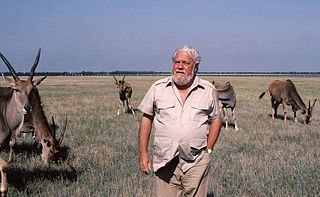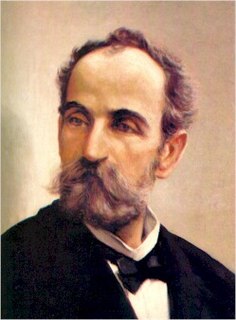A Quote by Friedrich Nietzsche
Freedom is the will to be responsible for ourselves. It is to preserve the distance which separates us from other men. To grow more indifferent to hardship, to severity, to privation, and even to life itself.
Related Quotes
Our minds tell us, and history confirms, that the great threat to freedom is the concentration of power. Government is necessary to preserve our freedom, it is an instrument through which we can exercise our freedom; yet by concentrating power in political hands, it is also a threat to freedom. Even though the men who wield this power initially be of good will and even though they be not corrupted by the power they exercise, the power will both attract and form men of a different stamp.
The boatmen appeared to lead an easy and contented life, and we thought that we should prefer their employment ourselves to many professions which are much more sought after. They suggested how few circumstances are necessary to the well-being and serenity of man, how indifferent all employments are, and that any may seem noble and poetic to the eyes of men, if pursued with sufficient buoyancy and freedom.
... it is one of the gains of advancing age that the good of young creatures becomes a more definite intense joy to us. With that renunciation for ourselves which age inevitably brings, we get more freedom of soul to enter into the life of others; what we can never learn they will know, and the gladness which is a departed sunlight to us is rising with the strength of morning to them.
You cannot begin to preserve any species of animal unless you preserve the habitat in which it dwells. Disturb or destroy that habitat and you will exterminate the species as surely as if you had shot it. So conservation means that we have to preserve forest and grassland, river and lake, even the sea itself. This is vital not only for the preservation of animal life generally, but for the future existence of man himself - a point that seems to escape many people.
Examine the life of the best and most productive men and nations, and ask yourselves whether a tree which is to grow proudly skywards can dispense with bad weather and storms. Whether misfortune and opposition, or every kind of hatred, jealousy, stubbornness, distrust, severity, greed, and violence do not belong to the favourable conditions without which a great growth even of virtue is hardly possible?
After each failure, ask forgiveness, pick yourself up, and try again. Very often what God first helps us toward is not the virtue itself but just this power of always trying again. For however important chastity (or courage, or truthfulness, or any other virtue) may be, this process trains us in habits of the soul which are more important still. It cures our illusions about ourselves and teaches us to depend on God. We learn, on the one hand, that we cannot trust ourselves even in our best moments, and, on the other, that we need not despair even in our worst, for our failures are forgiven.
Freedom is not just something with which we are born; it is something we achieve. America did not receive a perpetual endowment of freedom; it has had to struggle and fight to preserve it. Freedom is not an heirloom or an antique; it is a life that must fight against the corrosive powers of death and nourish itself on the daily bread of goodness and virtue.
We forget that, although each of the liberties which have been won must be defended with utmost vigour, the problem of freedom is not only a quantitative one, but a qualitative one; that we not only have to preserve and increase the traditional freedom, but that we have to gain a new kind of freedom, one which enables us to realize our own individual self; to have faith in this self and in life.
By educating women to use all their brains, men will not only be just, but will also ensure the future of a new social order in which women will apply their intelligence and warm feelings to the problems of living. Men are fools to entrust the upbringing of their sons, whom they expect to grow up to love freedom, to women who have never known freedom themselves.
Hardship, in forcing us to exercise greater patience and forbearance in daily life, actually makes us stronger and more robust. From the daily experience of hardship comes a greater capacity to accept difficulties without losing our sense of inner calm. Of course, I do not advocate seeking out hardship as a way of life, but merely wish to suggest that, if you relate to it constructively, it can bring greater inner strength and fortitude.









































